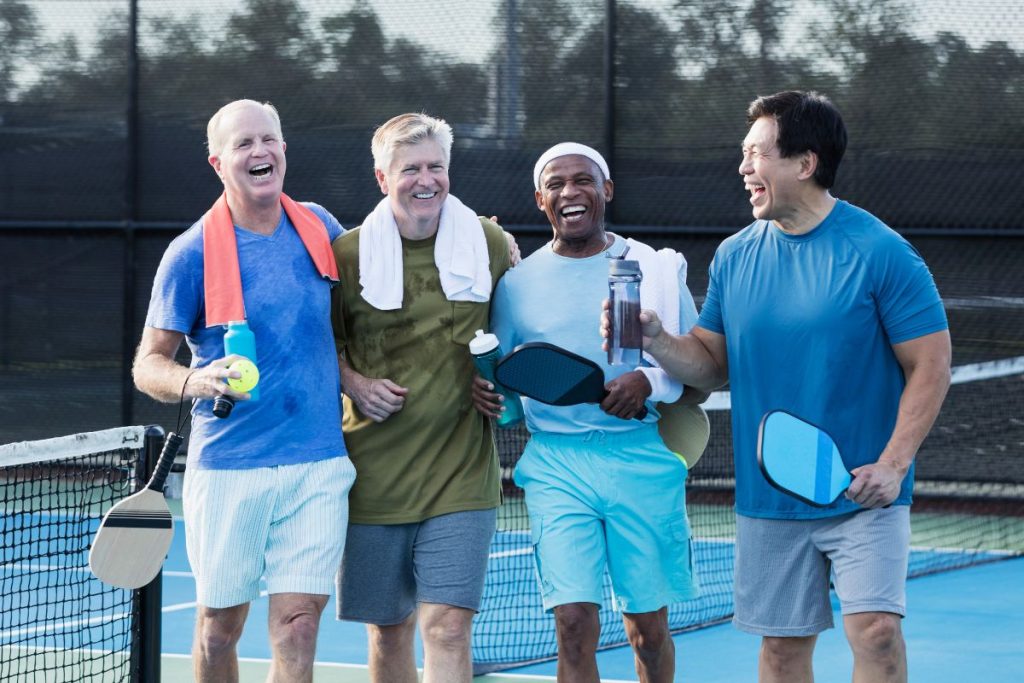Any sport that can foster community on a grand scale is worth investing in and being engaged with. After all, getting Americans, especially today’s youth, out of the house, moving, and talking to one another is harder than ever. In recent decades, social isolation and polarization have been on the rise, while overall physical activity has declined. All these trends have been exacerbated by the pandemic which in turn has lowered our “Social Capital”.
Studies have found that communities with low social capital suffer higher rates of crime, lower quality of government and worse physical health than those with deeper connections. All ages today have fewer friends. Why, most discussions are not face to face, they are done through social media platforms engineered to profit off our divisions. By many measures, we live in a lonely, withdrawn, exceptionally detached nation. Remember the days of the corner coffee shop where friends meet friends to discuss the day’s business and they attempted to solve the world’s problems? For me it was the lobby of the Post Office. Today it’s a text message, an email or any one of a plethora of social media platforms. When was the last time you met with friends to actually talk face to face?
In an article written by Dr. Rick L. Mask called “What Is Social Capital and Why Is It So Important”? He describes Social Capital as this, “Social capital is the value derived from positive connections between people”. In the article he explains, that “we must commit to truly connect with those around us and choose time with others over self-isolation. We must realize that the less time we spend talking to one another, the less time we spend understanding one another as individuals. If we take the time to connect with others and build some social capital, maybe we can also take the time to overcome our own biases and help de-polarize our society”.
How can Pickleball help a community’s social capital? Currently, local governments and private companies in cities like Portland, Minneapolis, Long Beach, Asheville, Macon, and others are trying to adjust by including pickleball into their long-term community development and equity plans. Macon, Georgia, for example, is now home to “The World’s Largest Indoor Pickleball Facility”. This cutting-edge complex boasts 32 courts,16 on the upper level and 16 on the lower level. Pickleball is a “low profit per square foot” activity which is why some private developers are a bit apprehensive about taking the lead in creating space for it. But community initiatives that center connectedness and well-being at the local level bring returns of a different kind. From pickleball courts to public parks, from adult learning centers to community gardens, all can go a long way toward getting people to engage with one another.
Our communities are trying to balance short-term pickleball court demands, while thinking about their longer-term needs. Communities are changing and evolving all the time. To keep up with those changes, they need to ensure the investments they make are in something that’s going to be used, not for the short term, but well into the future. Many communities, for a short-term fix, are converting tennis and basketball courts into dual-use courts. When developing their longer-term plans for things like a new park or a new development, their decision needs to be made on what better serves the community as a whole and what will have the greatest effect on their Social Capital.
Short term and long-term initiatives are needed and will come. The struggle is how to get people to leave the confines of their comfortable couches and get away from their computers, smart phones, and gaming devices to the pickleball courts. Once they get to the courts, how do we encourage conversation. The answer is found on the pickleball courts. There is laughing, verbal jabbing, high fives, fist bumps, shouts of excitement and did I mention laughing. Between games, the world’s problems are solved, and body ailments are diagnosed. There is friendship, fellowship, and fun there. A place where you meet old friends and make new ones. A place where social capital is at an all-time high. A place to get kids off the streets, off the couch and off the computer. A place where you can get healthy. A place where our leaders can find common ground and work on a better community.
Meaningful solutions can start with real connections on a local scale — whether it’s a conversation with your neighbor or a pickup game of pickleball.
Pickleball might not save our communities, but it’s certainly worth taking a dink at.

